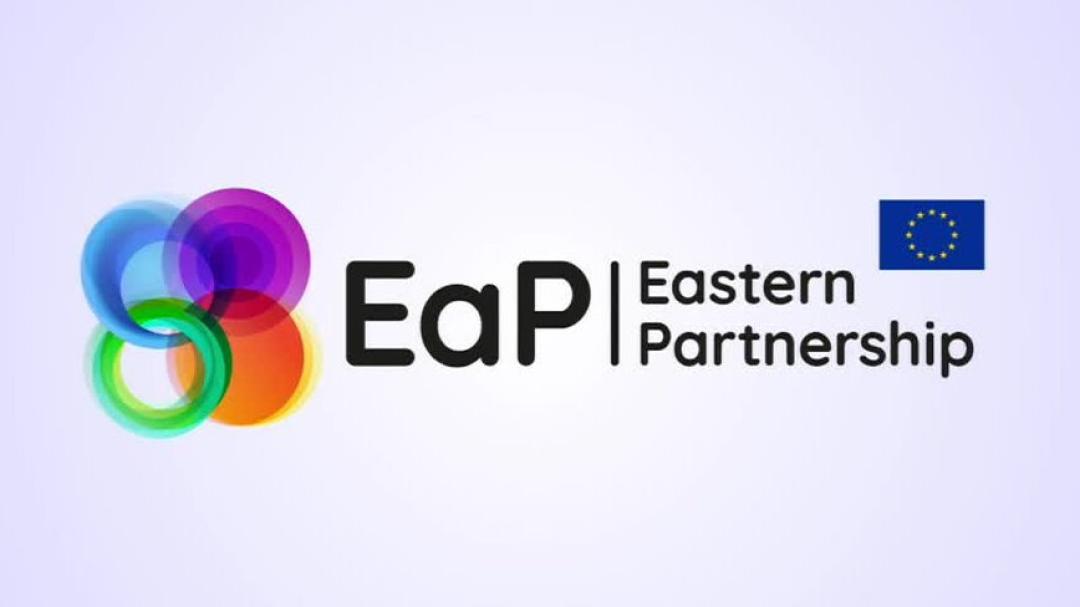
Eastern Partnership Summit 2020 video conference

On 18 June, the Eastern Partnership (EaP) Summit 2020 was held via video conference due to the Covid-19 pandemic. The event was attended by the leaders of the EaP countries (Armenia, Azerbaijan, Belarus, Georgia, Moldova and Ukraine), as well as the European Council President Charles Michel, European Commission President Ursula von der Leyden, German Chancellor Angela Merkel, French President Emmanuel Macron, Austrian Chancellor Sebastian Kurz, Dutch Prime Minister Mark Rutte, other European leaders.
The EU perspective
The EU Council President Charles Michel told the reporters following the videoconference that the summit would be an opportunity to consolidate and reinforce the partnership, which is essential for geopolitical reasons.
The President of the EU Commission Ursula von der Leyden focused on the recently approved “Eastern Partnership policy beyond 2020” document (Caucasus Watch reported) as the basis of EU-EaP relations. “Today we discussed how to shape and focus our partnership beyond 2020. With the leaders, we have indeed five priorities for partnership in the coming years. First of all, we want a partnership focused on the economy that creates; it creates decent jobs, better physical connections between our countries and better opportunities, particularly for young people. Indeed, the numbers are impressive. If you look at the increase of trade volumes between 2016 and 2019, the bilateral trade volumes between the EU and all our six Eastern Partnership partners has increased substantially. We see also that the intra-regional trade has more than doubled,” she said.
Von der Leyden also added that the EU Commission would pay special attention to the issues of good governance, the rule of law, the formation of democratic institutions, human rights and gender equality in the EaP countries. She also mentioned the results of the recently published EU public opinion polls in the EaP countries (Caucasus Watch reported), noting that the EU was highlighted as the most trusted foreign institution in the region.
Armenia
Armenia’s Prime Minister Nikol Pashinyan spoke on the challenges his country is currently facing. He highlighted that the fight against corruption and reforming the judiciary were at the top of his government’s agenda. He also spoke about the former ruling elites of Armenia during the conference. “Our efforts, however, have not gone without strong resistance from the former oligopolies and the corrupt circles. Those who fear to lose their illegally-acquired property, manipulate the mass media, and fabricate fake news to instil distrust of the government and its efforts to confront the coronavirus pandemic,“ he said.
Pashinyan further emphasized that Armenia is committed to further developing the partnership with the EU based on shared democratic values and cultural commonalities. He also welcomed the “Eastern Partnership policy beyond 2020” document, outlining that the five objectives of the document were in line with his government’s priorities. The Armenian Prime Minister also outed his appreciation of the EU support package to combat Covid-19 in Armenia (over 92 million euros).
Azerbaijan
Azerbaijan’s President Ilham Aliyev said that the partnership with the EU was one of the main priorities of Azerbaijan's foreign policy, adding that Azerbaijan and the EU were “in the final stages of negotiations on a new partnership agreement.” Conveying his gratitude to the EU Foreign Minister Josep Borrell, Aliyev also expressed his hope that EU and the Non-Aligned Movement would cooperate more intensively in the near future.
On a domestic level, Aliyev highlighted the economic achievements of his country and the prospects of economic relations with the EU. “Despite the occupation and humanitarian catastrophe, Azerbaijan has achieved great results in socio-economic development. Over the past 16 years, our gross domestic product has tripled, and the poverty rate has fallen from 49 per cent to 5 percent. The European Union is our main trading partner. About 50 per cent of our trade is with member states. For almost fifteen years, Azerbaijan has been a reliable supplier of crude oil to European markets,” he said, pointing out that Azerbaijan would start supplying natural gas to EU member states in the near future.
Georgia
Georgia’s Prime Minister Giorgi Gakharia spoke on the EU-Georgia relations, following the lifting of almost all Covid-19 related restrictions in Georgia. “Georgia is preparing for a gradual, but cautious re-opening of our borders. At the same time, when EU member states decide to gradually reopen their borders, I hope to see Georgia among the list of safe countries not only because we are close partners, but predominantly because [we are] a safe partner,” he said.
Noting that Georgia aspires to full-fledged integration into the EU, Gakharia said he hoped that “the EU would support Georgia’s gradual integration into the single EU market, which would have been a key benchmark for the EaP.” “We expect that an approach based on interests and progress of partners will be maintained. It may involve interaction with countries in a new format by facilitating a sector dialogue, supporting the essential connectivity with a specific focus on the potential of the Black Sea. It should be one of the benchmarks for stimulating the economic welfare and for meeting the connectivity goals of the EU and Asia,” he added.
Ukraine’s President Volodymyr Zelensky, was even more vocal in regard to the possible EU integration of Georgia, Moldova and Ukraine, tweeting that the “Eastern Partnership shouldn’t limit the ambitions of its partners.” “For some, political dialogue or strategic partnership with the EU is enough, some seek integration with the common market on the basis of four freedoms, but Ukraine seeks full membership of the EU,” he emphasized.
See Also


Mirzoyan Meets US Deputy Assistant Secretary Joshua Huck

Azerbaijani President Holds Talks with UAE and German Business Delegations on Economic Cooperation

Grigoryan Confirms Armenia’s Readiness to Dissolve OSCE Minsk Group Upon Peace Treaty Signing

Azerbaijani Official Warns of Ecological Risks to Caspian Sea, Similar to Lake Urmia and Aral Sea

